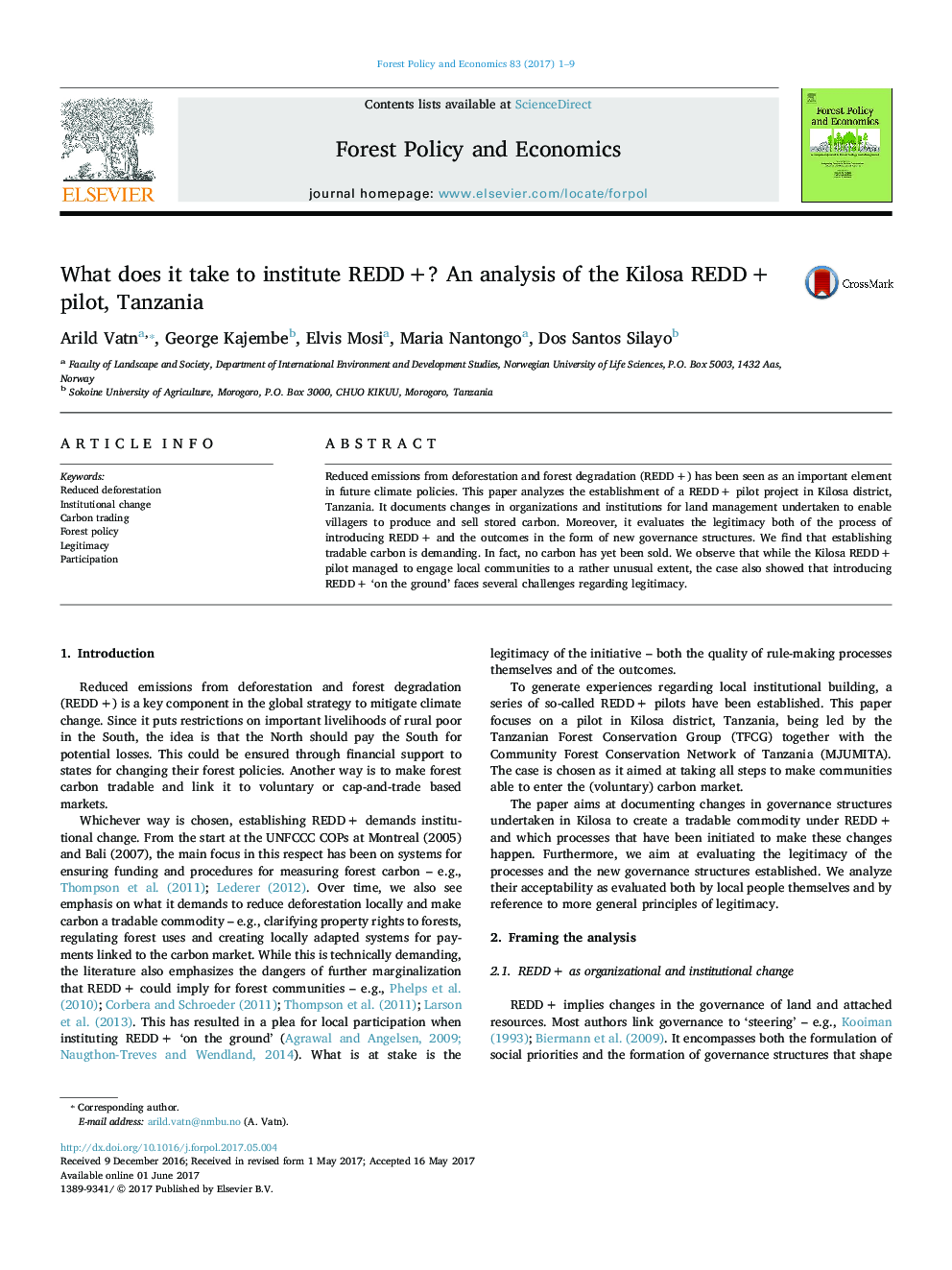| Article ID | Journal | Published Year | Pages | File Type |
|---|---|---|---|---|
| 6459662 | Forest Policy and Economics | 2017 | 9 Pages |
â¢Establishing REDD + in Kilosa demanded substantial changes in institutions.â¢The local assessment of the Kilosa REDD + pilot was generally positive.â¢Nevertheless, establishing necessary rights and rules for forest use is conflictual.â¢Forced relocation of people living in the REDD + forests is a problematic outcome.â¢Trading carbon demands capacities that local communities do not possess.
Reduced emissions from deforestation and forest degradation (REDDÂ +) has been seen as an important element in future climate policies. This paper analyzes the establishment of a REDDÂ + pilot project in Kilosa district, Tanzania. It documents changes in organizations and institutions for land management undertaken to enable villagers to produce and sell stored carbon. Moreover, it evaluates the legitimacy both of the process of introducing REDDÂ + and the outcomes in the form of new governance structures. We find that establishing tradable carbon is demanding. In fact, no carbon has yet been sold. We observe that while the Kilosa REDDÂ + pilot managed to engage local communities to a rather unusual extent, the case also showed that introducing REDDÂ + 'on the ground' faces several challenges regarding legitimacy.
